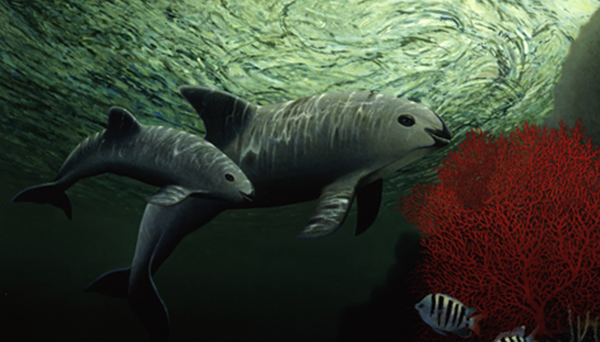CEC receives submission on the vaquita porpoise under USMCA/CUSMA Chapter 24
Montreal, 12 August 2021—Yesterday, the Center for Biological Diversity, Animal Welfare Institute, Natural Resources Defense Council, and the Environmental Investigation Agency filed a submission with the Commission for Environmental Cooperation (CEC) under the provisions of Chapter 24 of the United States-Mexico-Canada trade agreement (USMCA/CUSMA). The Submitters assert that Mexico is failing to effectively enforce its environmental laws to protect the vaquita porpoise.
The Submitters assert that “the Mexican government is failing to effectively enforce several environmental laws and as a result has caused the near-extinction of the vaquita porpoise." Approximately only 10 vaquita remain. The submitters assert that vaquita populations have been declining over the years due to the gillnets used to fish totoaba, an endangered fish threatened by illegal fishing and sold in international markets.
The vaquita porpoise (Phocoena sinus) is the world’s smallest cetacean and the most endangered marine mammal. The vaquita has the smallest range of any whale, dolphin, or porpoise, and only lives in a small 1,500 square-mile area in Mexico’s Upper Gulf of California, near the town of San Felipe. The totoaba (Totoaba macdonaldi) is a large, schooling marine fish whose habitat partially overlaps with the vaquita. According to the Submitters, Mexico is not effectively enforcing the General Wildlife Law (Ley General de Vida Silvestre) and federal regulations governing fishing within the vaquita's habitat, including regulations that prohibit the use of gillnets and the capture of totoaba.
The Secretariat will review the submission and determine whether it meets the requirements of USMCA Article 24.27(2) and (3). To learn more, please consult the registry page for the submission SEM-21-002 (Vaquita Porpoise).

The CEC SEM Process
The CEC Submissions on Enforcement Matters process supports public participation, information-sharing between governments and the public, and transparency and openness in the effective enforcement of environmental law in North America. If you have reason to believe that an environmental law is not being effectively enforced by Canada, Mexico or the United States, the SEM process may address your concerns.
As of 1 July 2020, the CEC’s SEM process is governed by USMCA Articles 24.27 and 24.28 of the Environment Chapter of the free trade agreement between Canada, Mexico and the United States (CUSMA, T-MEC, USMCA).
Want to learn more about the SEM process? Please watch this two-minute video for an introduction: